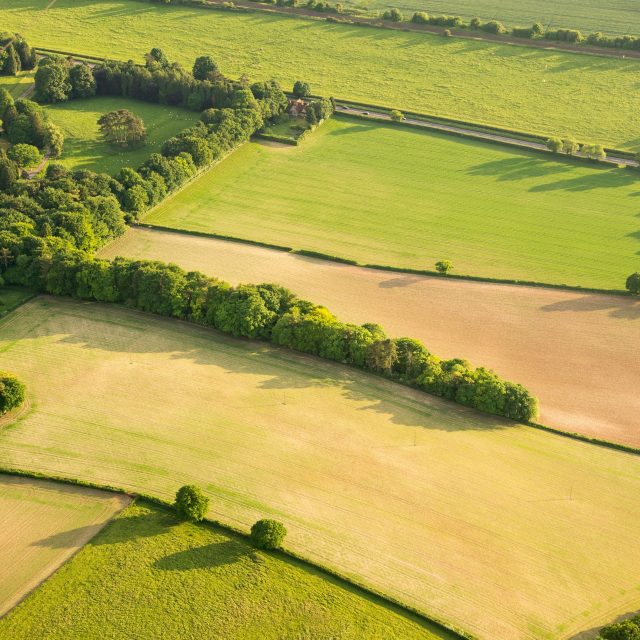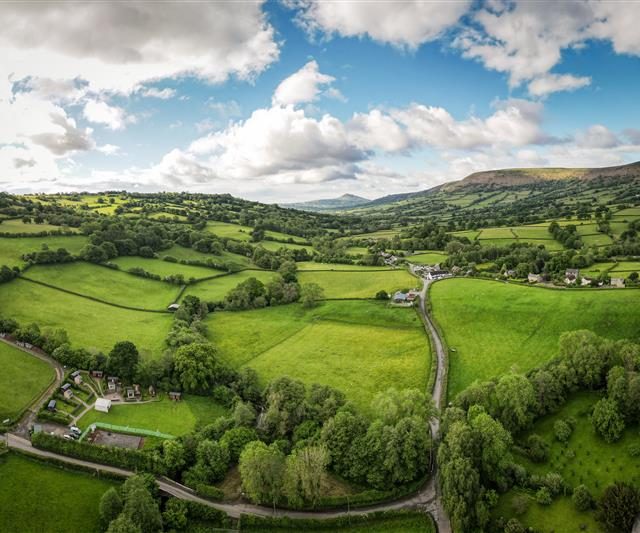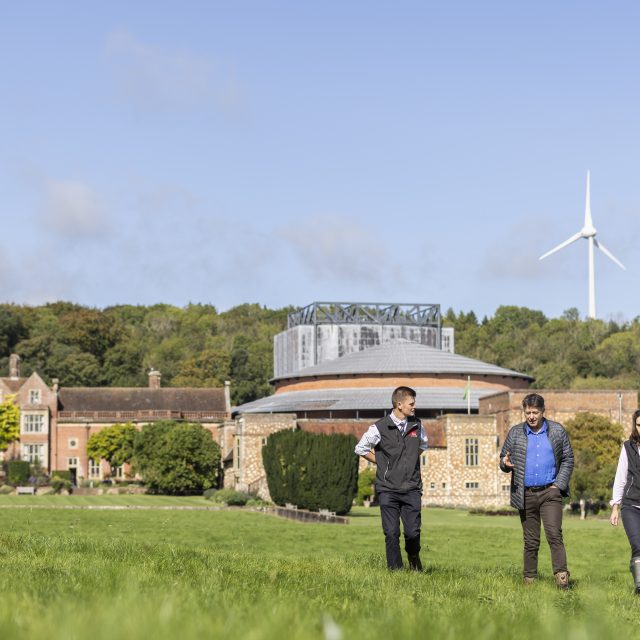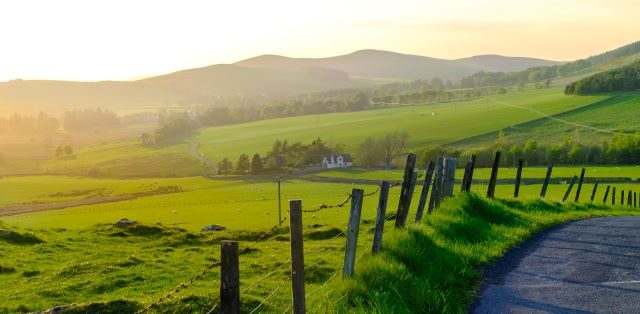How greater diversity will help the rural sector to thrive
From understanding the changing needs of customers to finding innovative solutions to business challenges, the farms and estates that are working to improve diversity will be the ones that thrive in the future, say experts
British agriculture might have made efforts to move away from its negative stereotypes in recent years, but for many in the industry there remains a lot of work to make it truly inclusive.
There’s still a massive disconnect between farming and people,’ says farm vet Navaratnam (Theeb) Partheeban, who recently completed a Nuffield Farming Scholarship looking at ways to improve diversity in UK agriculture. The industry doesn’t reflect the diversity of society.
From my own experience when I’m on farms or at industry events I’m always the minority, and that hasn’t changed over the 14 years [I’ve been working in agriculture]. We need to do better.’
Take a glance at data on the farming sector’s workforce and Theeb’s experiences aren’t surprising: Government figures released in 2022 show 99.8% of principal farmers’ in the UK are white.
Meanwhile, according to 2021 Office of National Statistics (ONS) numbers, 97.2% of people employed in agriculture, forestry and fishing are white, making farming the least diverse job sector in the UK.
And the lack of diversity doesn’t stop at ethnicity. While the number of female farmers has increased in the past decade, the number of women in agriculture is still comparatively low: according to the most recent ONS figures, only one in five farmers are women.
The statistics are ones that the rural sector ignores at its peril, say experts, particularly as the industry needs to attract talented, skilled people to ensure farm businesses and estates remain sustainable.
‘We have a rapidly changing sector, but we’re not changing as quickly as we should be when it comes to finding the right people to help tackle the challenges the industry faces,’ says Karl McConville, Strutt & Parker’s Deputy Head of Rural.
‘Not only should we be looking more widely for talent and experience to fill our skills gaps, we should be reflecting the public in the people we hire if we’re going to understand what our customers need.’
The public is becoming more aware of diversity and are increasingly keen to support businesses that are visibly diverse, Karl says.
‘Farms and estates shouldn’t ignore that,’ he adds. ‘We won’t get the support, innovation and creativity we need simply by hiring clones of ourselves.’
DIFFERENT EXPERIENCES
For Matthew Naylor, director of Lincolnshire flower-growing business Naylor Flowers, encouraging more diverse thinking in rural businesses is key to enabling them to thrive.
‘To have long-term success in business you need to understand what consumers want, what new technologies are available, and the external factors linked to climate change and demographic shifts,’ he says. ‘The more people we have from different backgrounds with different experiences, the more alert we are to what’s going on in the world.’
Increasing diversity in rural businesses is a subject Matthew feels strongly about: in 2018 he set up Agrespect, a network promoting diversity, inclusion and equality in the countryside regardless of sexuality, race or background.
‘I wanted to create visibility for LGBTQ+ people in agriculture and show we aren’t just capable of doing a great job, but we also want to be open about who we are,’ he explains.
‘We want to show people that the industry is relatable, interesting and open to everyone and that by buying British you’re supporting a range of people.’
Creating an environment where people feel more welcome in the industry takes effort, Matthew acknowledges, something he saw during his chairmanship of the Oxford Farming Conference.
‘We wanted to have more diverse applications [to join the board of directors], and that meant we had to advertise more broadly to reach more people,’ he says. ‘Once we had the applications we could be as selective as we would ordinarily be, but to find those different people we had to put the work in.’
Christine Tacon, chair of MDS, a graduate recruitment scheme for the food and fresh produce industry, agrees that looking more widely and being more open to people from outside agriculture is key to improving diversity in farming.
‘The industry is moving fast, but the industry has been horrendously slow at reacting to find the people it needs particularly in senior positions,’ she says. ‘If it is serious about finding talent and people with leadership potential, we need to think more broadly about the people we bring in.’
Throughout her career across the food sector, including as the Government’s grocery ombudsman, Christine repeatedly found she was the only woman in meetings, which prompted her to create the Women in Food and Farming (WIFF) network.
Today WIFF has over 1,000 members who meet twice a year to network, offer each other career support, and hear from inspiring speakers.
‘What I’ve realised through our speakers is that women bring a different way of thinking to the food industry,’ Christine says.
MAKING CONNECTIONS
For Theeb, his Nuffield scholarship showed him it is possible to break down barriers and bring more diversity into rural businesses, especially if the industry starts making connections at an early age.
‘It takes time and effort to understand different cultures, but we should be reaching out to young people and thinking about how rural industries can relate to their background,’ he says. ‘So if it’s an estate, how does it connect to them? Is there something they’re interested in that could connect their lives to working on an estate, whether that’s science, or nature, or climate change? We need to make it easy for young people to make a connection rather than leaving them to find the connection themselves.
‘Things are changing, not just in agriculture but in terms of the consumer,’ he adds. ‘Shoppers can decide whether they want to buy British or not. Farmers’ children don’t necessarily want to work on the family farm.
‘We need to be thinking about succession, sustainability, what consumers want and how rural businesses will thrive, and that’s where different people can help. The future needs diversity.’
TOP TIPS
Look beyond the boundaries of your business
Don’t just think locally when it comes to finding the right people. Jobs on estates often come with accommodation, so location doesn’t always matter think about the skills you need and advertise more widely.
Search outside of farming
Look at your business and think about the types of people you need to fill your skills gaps. You don’t have to find people who come from traditional routes – you need to think about who can solve your problems.
Engage with schemes working to improve diversity
Strutt & Parker supports and partners with the 10,000 Black Interns programme, which helps young people of colour find a way into different industries, including the rural sector. We also work with the apprenticeship scheme to bring people without a qualifying degree into the industry, bringing a welcome diversity of thought into the business.
This article first appeared in the Autumn/Winter issue of Land Business. Download the Autumn/Winter 2023 edition of Land Business magazine.






